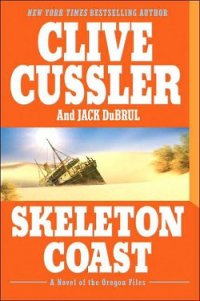The ship that found herself - Kipling Rudyard (книги онлайн полные версии бесплатно txt) 📗
“Evidently that’s what I’m made for,” said the plate, closing again with a sputter of pride. “Oh, no, you don’t, my friend!”
The top of a wave was trying to get in from the outside, but as the plate did not open in that direction, the defeated water spurted back.
“Not bad for five-sixteenths of an inch,” said the bulwark-plate. “My work, I see, is laid down for the night”; and it began opening and shutting, as it was designed to do, with the motion of the ship.
“We are not what you might call idle,” groaned all the frames together, as the Dimbula climbed a big wave, lay on her side at the top, and shot into the next hollow, twisting in the descent. A huge swell pushed up exactly under her middle, and her bow and stern hung free with nothing to support them. Then one joking wave caught her up at the bow, and another at the stern, while the rest of the water slunk away from under her just to see how she would like it; so she was held up at her two ends only, and the weight of the cargo and the machinery fell on the groaning iron keels and bilge-stringers.
“Ease off! Ease off, there!” roared the garboard-strake. “I want one-eighth of an inch fair play. D’you hear me, you rivets!”
“Ease off! Ease off!” cried the bilge-stringers. “Don’t hold us so tight to the frames!”
“Ease off!” grunted the deck-beams, as the Dimbula rolled fearfully. “You’ve cramped our knees into the stringers, and we can’t move. Ease off, you flat-headed little nuisances.”
Then two converging seas hit the bows, one on each side, and fell away in torrents of streaming thunder.
“Ease off!” shouted the forward collision-bulkhead. “I want to crumple up, but I’m stiffened in every direction. Ease off, you dirty little forge-filings. Let me breathe!”
All the hundreds of plates that are riveted to the frames, and make the outside skin of every steamer, echoed the call, for each plate wanted to shift and creep a little, and each plate, according to its position, complained against the rivets.
“We can’t help it! We can’t help it!” they murmured in reply. “We’re put here to hold you, and we’re going to do it; you never pull us twice in the same direction. If you’d say what you were going to do next, we’d try to meet your views.”
“As far as I could feel,” said the upper-deck planking, and that was four inches thick, “every single iron near me was pushing or pulling in opposite directions. Now, what’s the sense of that? My friends, let us all pull together.”
“Pull any way you please,” roared the funnel, “so long as you don’t try your experiments on me. I need fourteen wire-ropes, all pulling in different directions, to hold me steady. Isn’t that so?”
“We believe you, my boy!” whistled the funnel-stays through their clinched teeth, as they twanged in the wind from the top of the funnel to the deck.
“Nonsense! We must all pull together,” the decks repeated. “Pull lengthways.”
“Very good,” said the stringers; “then stop pushing sideways when you get wet. Be content to run gracefully fore and aft, and curve in at the ends as we do.”
“No—no curves at the end. A very slight workmanlike curve from side to side, with a good grip at each knee, and little pieces welded on,” said the deck-beams.
“Fiddle!” cried the iron pillars of the deep, dark hold. “Who ever heard of curves? Stand up straight; be a perfectly round column, and carry tons of good solid weight-like that! There!” A big sea smashed on the deck above, and the pillars stiffened themselves to the load.
“Straight up and down is not bad,” said the frames, who ran that way in the sides of the ship, “but you must also expand yourselves sideways. Expansion is the law of life, children. Open out! open out!”
“Come back!” said the deck-beams, savagely, as the upward heave of the sea made the frames try to open. “Come back to your bearings, you slack jawed irons!”
“Rigidity! Rigidity! Rigidity!” thumped the engines. “Absolute, unvarying rigidity—rigidity!”
“You see!” whined the rivets, in chorus. “No two of you will ever pull alike, and—and you blame it all on us. We only know how to go through a plate and bite down on both sides so that it can’t, and mustn’t, and sha’n’t move.”
“I’ve got one fraction of an inch play, at any rate,” said the garboard-strake, triumphantly. So he had, and all the bottom of the ship felt the easier for it.
“Then we’re no good,” sobbed the bottom rivets. “We were ordered—we were ordered never to give; and we’ve given, and the sea will come in, and we’ll all go to the bottom together! First we’re blamed for everything unpleasant, and now we haven’t the consolation of having done our work:”
“Don’t say I told you,” whispered the Steam, consolingly; “but, between you and me and the last cloud I came from, it was bound to happen sooner or later. You had to give a fraction, and you’ve given without knowing it. Now, hold on, as before.”
“What’s the use?” a few hundred rivets chattered. “We’ve given—we’ve given; and the sooner we confess that we can’t keep the ship together, and go off our little heads, the easier it will be. No rivet forged can stand this strain.”
“No one rivet was ever meant to. Share it among you,” the Steam answered.
“The others can have my share. I’m going to pull out,” said a rivet in one of the forward plates.
“If you go, others will follow,” hissed the Steam. “There’s nothing so contagious in a boat as rivets going. Why, I knew a little chap like you—he was an eighth of an inch fatter, though—on a steamer—to be sure, she was only twelve hundred tons, now I come to think of it in exactly the same place as you are. He pulled out in a bit of a bobble of a sea, not half as bad as this, and he started all his friends on the same butt-strap, and the plates opened like a furnace door, and I had to climb into the nearest fogbank, while the boat went down.”
“Now that’s peculiarly disgraceful,” said the rivet. “Fatter than me, was he, and in a steamer not half our tonnage? Reedy little peg! I blush for the family, sir.” He settled himself more firmly than ever in his place, and the Steam chuckled.
“You see,” he went on, quite gravely, “a rivet, and especially a rivet in your position, is really the one indispensable part of the ship.”
The Steam did not say that he had whispered the very same thing to every single piece of iron aboard. There is no sense in telling too much.
And all that while the little Dimbula pitched and chopped, and swung and slewed, and lay down as though she were going to die, and got up as though she had been stung, and threw her nose, round and round in circles half a dozen times as she dipped, for the gale was at its worst. It was inky black, in spite of the tearing white froth on the waves, and, to top everything, the rain began to fall in sheets, so that you could not see your hand before your face. This did not make much difference to the ironwork below, but it troubled the foremast a good deal.
“Now it’s all finished,” he said dismally. “The conspiracy is too strong for us. There is nothing left but to—”
“Hurraar! Brrrraaah! Brrrrrrp!” roared the Steam through the fog-horn, till the decks quivered. “Don’t be frightened, below. It’s only me, just throwing out a few words, in case any one happens to be rolling round to-night.”
“You don’t mean to say there’s any one except us on the sea in such weather?” said the funnel, in a husky snuffle.
“Scores of ’em,” said the Steam, clearing its throat. “Rrrrrraaa! Brraaaaa! Prrrrp! It’s a trifle windy up here; and, Great Boilers! how it rains!”
“We’re drowning,” said the scuppers. They had been doing nothing else all night, but this steady thrash of rain above them seemed to be the end of the world.
“That’s all right. We’ll be easier in an hour or two. First the wind and then the rain: Soon you may make sail again! Grrraaaaaah! Drrrraaaa! Drrrp! I have a notion that the sea is going down already. If it does you’ll learn something about rolling. We’ve only pitched till now. By the way, aren’t you chaps in the hold a little easier than you were?”



